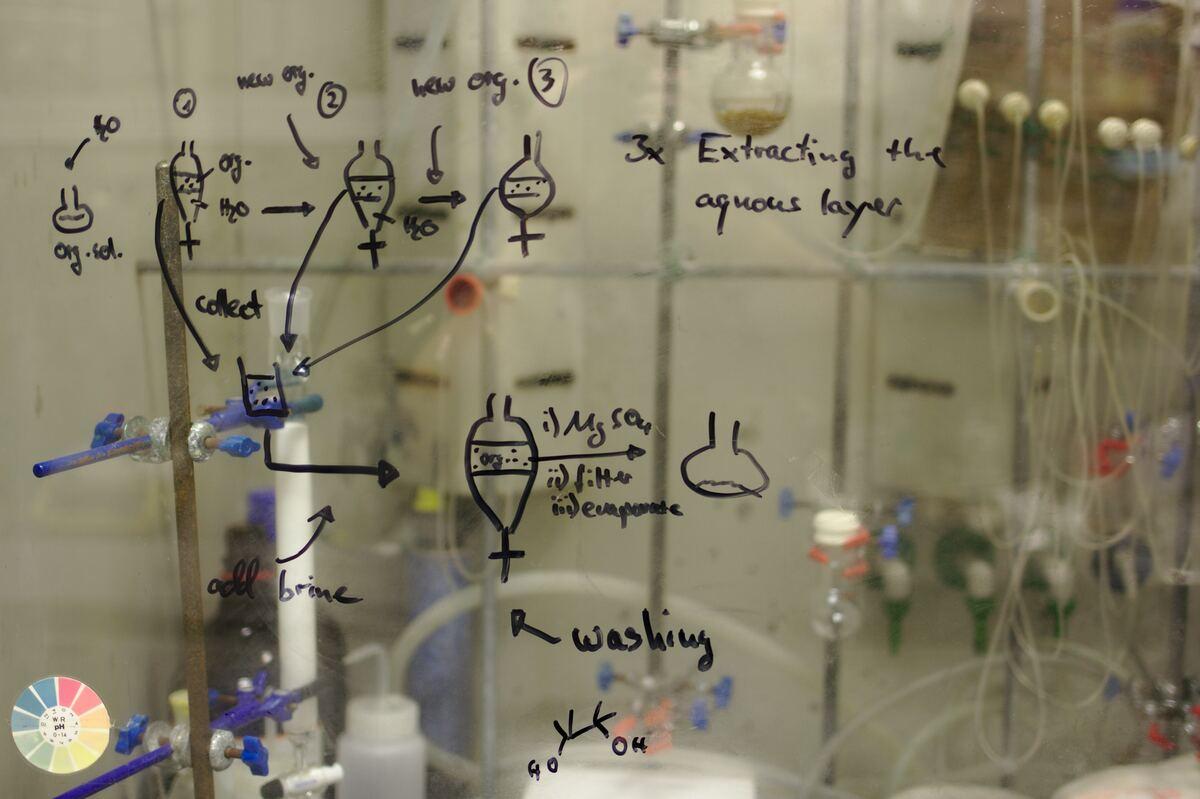Ah, the thrill of the IB program! I remember when I first faced the daunting task of writing my extended essay in Chemistry. Having been through the wringer, I now have a few insights that can help budding IB students like yourself.
Introduction to Chemistry Extended Essay
The International Baccalaureate (IB) curriculum presents its fair share of challenges, and the Chemistry extended essay stands tall among them. If you’re scratching your head and wondering, “What exactly is this paper?” Allow me, a seasoned IB tutor, to explain.
What Is an Extended Essay in Chemistry?
In simple terms, an extended essay in Chemistry represents a harmonious blend of detailed scientific inquiry with the finesse of academic writing. It offers a platform for you to showcase your expertise on a topic that genuinely intrigues you. Having trodden this path before, I can vouch for its sheer significance. With its vast scope of 4,000 words, this essay reflects your dedication, analytical acumen, and capacity for independent research.
Why It’s Crucial for IB Students
You might be pondering, “Why give this essay such prominence?” First and foremost, it’s an integral element of the IB Diploma Programme. But beyond the academic requirements, the extended essay cultivates skills that are golden tickets in higher education and the professional realm. Here’s the essence of what the Chemistry extended essay offers:
- Broadened Understanding. Venturing into a chosen topic enriches your knowledge, surpassing standard curriculum confines.
- Refinement of Research Skills. The entire path, from hypothesis formulation to results analysis, sharpens your investigative abilities.
- Writing Skill Enhancement. Crafting a lucid, logical, and engaging narrative is a skill, and this process hones just that.
- Mastery in Time Management. Juggling school responsibilities with the demands of an essay can mold you into a time management maestro.
- Evolution of Critical Thinking. Evaluating validity, interpreting data, and building a logical argument help nurture your critical thought process.
Conclusively, the extended essay isn’t just a task; it’s an invaluable learning experience for every IB scholar. This essay promises growth, understanding, and academic prowess regardless of your future aspirations. I believe the proficiencies you develop here will serve you well in many circumstances.
Choosing the Perfect Topic for Your Paper
If you’re part of the IB curriculum, you know how pivotal this extended essay is. From my experience, choosing the right topic can make or break your extended essay in Chemistry. This step is crucial in your work. Over the years, I’ve noticed some patterns in the most successful IB Chemistry extended essay topics:
- The Role of Transition Metals in Catalyzing Organic Reactions
- Exploring the Structural Variations in Different Types of Polymers
- Molecular Gastronomy: The Intersection of Chemistry and Culinary Arts
- Effects of Temperature on Enzyme Activity
- Environmental Chemistry: Assessing pH Variations in Local Water Sources and Its Impacts
- Antioxidant Properties of Common Fruits
- The Role of Chemistry in Sustainable Energy: Hydrogen Fuel Cells
- Chemical Properties of Natural vs. Synthetic Fibers
- Chiral Drugs in the Pharmaceutical Industry
- Pharmacological Evolution: The Chemistry of Antibiotic Resistance
- Impact of Heavy Metals on Aquatic Life
- Isolation of Caffeine from Tea Leaves
- The Chemistry Behind Fermentation and Flavor Profiles in Wines
- Synthesis and Applications of Biodegradable Plastics
- Quantum Dots and Their Role in Modern Electronics

The choices are vast, from organic reactions to the fascinating world of polymers. Yet, picking a topic that resonates with your interests and aspirations is essential. When contemplating extended essay topics in Chemistry IB, consider feasibility and accessibility to research resources. I’ve seen countless students become overly ambitious, only to realize too late that their issue was too vast or complex.
Crafting Your Chemistry Extended Essay Outline
Constructing an outline for your Chemistry extended essay is akin to laying down the blueprint for a grand edifice. In this preliminary phase, the raw chaos of ideas begins to take on a structured form. In my years of mentoring IB students, I’ve come to believe that the real magic starts with the outline.
By meticulously organizing your thoughts at this stage, you set the scene for a coherent and compelling essay. If done right, this outline serves as the backbone, ensuring your paper progresses logically, weaving together all facets of your research into a harmonious narrative.
Transitioning from a broad topic to a refined argument requires clarity, and a well-thought-out outline provides just that. Every section, from the introduction to the conclusion, becomes a natural extension of the preceding one, eliminating abrupt jumps or gaps in your narrative.
Over the years, I’ve noticed that essays rooted in robust outlines stand out for their academic rigor and ability to engage the reader. In essence, while this work might seem like a preparatory step, it is, in reality, the foundation upon which the entire edifice of your extended essay rests.
Tips for Conducting Research for Chemistry Extended Essay
Research, with its vast sea of information, can indeed seem overwhelming. But fret not! From my years of experience, I can attest that robust research is the foundation of a stellar extended essay in Chemistry. Here are some best practices to help you move through this critical phase.
First, in research, you need to understand the nature of your resources:
- Primary Data. It is raw info, often collected firsthand by the researcher. It could be experimental results, surveys, or direct observations.
- Secondary Data. It is info that has been previously collected and analyzed by someone else. Examples include book information, previously published research papers, or summarized statistics.
Also, venturing beyond your classroom notes is imperative. Broadening your horizons by tapping into a variety of resources can provide a richer perspective:
- Textbooks. While they offer baseline information, they provide reliable and structured insights into complex topics.
- Academic Journals. These are riches of cutting-edge research and development. Sites like Google Scholar or PubMed can be very resourceful.
- Expert Interviews. Speaking to professionals in the field can offer nuanced insights and even guide you towards lesser-known resources.
- Online Databases. Resources such as JSTOR or ScienceDirect host a multitude of research papers, offering in-depth studies on many topics.
In today’s age of information overload, it’s essential to discern the credibility of your sources. So, ensure that the authors or contributors are experts in their respective fields. Always favor articles and journals that have undergone peer review, as this adds an extra layer of validation to the content.
Chemistry Extended Essay: The Writing Process
Ah, the moment of truth — when thoughts form on paper (or screens)! From my experience, some elements are non-negotiable.
First, your research question needs to be clear and focused. The structure of your essay, ranging from the abstract to the conclusion, should be linear and logical. Diagrams, tables, and other visual aids can elevate your writing immensely. They can provide clarity and break the monotony of text.

Need help with your IB extended essay?
From research and analysis to structuring and editing, our skilled mentors will be by your side, helping you craft an exceptional extended essay that not only meets the wordcount and stringent IB criteria but also reflects your passion for selected IB group.
So, this essay is an intricate dance of ideas, and understanding the writing process can help streamline your efforts. Let’s break down the steps to ensure your work shines.
Setting the Stage with an Introduction
The beginning of your essay is your first impression. Here, you’ll lay the groundwork by introducing the central theme of your Chemistry extended essay. It’s vital to:
- State the Research Issue. Clearly articulate what you aim to investigate.
- Provide Background. Briefly touch upon why this topic is relevant or interesting.
- Outline the Objective. Share what you hope to achieve by the essay’s end.
Starting with an engaging introduction is paramount. It is where you’ll mention the essence of your Chemistry extended essay and provide context.
Building Your Argument
This section is the heart of your essay. It’s where you present your findings, discuss methodologies, and make your case. To make this section impactful:
- Present Data Methodically. Coherently organize your findings chronologically or based on importance.
- Support with Evidence. Relevant and credible sources should back every claim.
- Discuss Implications. Highlight why your findings matter in the grand scheme of things.
In essence, the writing process, though challenging, is your opportunity to weave a compelling and academically sound narrative.
Drawing Conclusions
As the final act, the conclusion carries the weight of summarizing your hard work and leaving a lasting impression. Here, it’s crucial to:
- Reiterate Key Points. Refresh the reader’s memory about the essay’s significant aspects.
- Discuss the Outcome. Did your research meet its objective? Any surprises?
- Highlight Importance. Elaborate on the broader significance of your findings in the context of the Chemistry world.
As you progress from the introduction to the conclusion, ensure each section is a building block that adds value to the overall story of your Chemistry extended essay.
Chemistry Extended Essay Ideas and Inspiration
Sometimes, a little inspiration goes a long way. Over the years, I’ve come across many Chemistry extended essay ideas that were unique and impactful. Reviewing other successful works might spark some creativity if you’re feeling stuck. But remember, it’s about finding a topic that speaks to you personally.
Analyzing structure, research methodologies, and argumentation strategies in previous successful essays can offer valuable insights. However, the essence of such a paper lies in its personal touch. It’s a canvas where you paint with chemicals, reactions, and theories.
In the end, while guidance and examples can steer you, your curiosity and personal interest will truly breathe life into your essay. Whether you’re captivated by the mysteries of the universe or intrigued by the workings of the microscopic world, Chemistry, with its endless wonders, has a niche that resonates with your spirit.
Conclusion
Lastly, let’s consider the power of proofreading. Before submitting, always consult the Chemistry extended essay guide for structure and formatting tips. In my years as an IB tutor, I can’t stress enough how critical this final step is. A polished essay showcases your knowledge and your commitment to excellence. So there you have it, a comprehensive guide to writing an exceptional extended essay in Chemistry. Take your time, enjoy the process, and most importantly, make it uniquely yours.
And always remember that our team at Extended Essay Writers is here to assist you!







